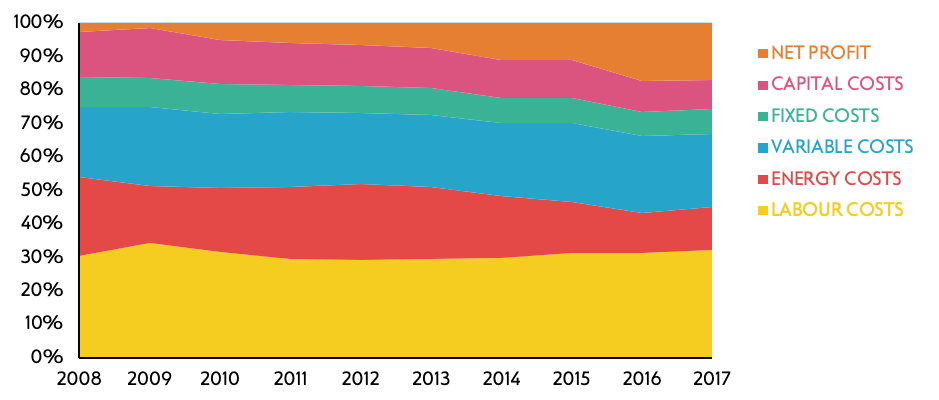The forecast promises a fine weekend in the far south west...
so a Golden Harvest will be on the cards...
with just the one netter landing...
the Stelissa put ashore over 150 boxes of hake...
and a few boxes of morki for bait...
there were also a few inshore landings of bass and mullet...
while the beam trawler Cornishman landed its usual run of flats including these big turbot...
John Dory, ray...
and monk tails...
the hand-line boys picked away a few shots of squid...
mackerel...
and bass from Cap'n Cod on the Butts...
apparently they make gorgeous eating - yet to try one!..
just gone 6am and Newlyn Harbour...
shines in the morning light...
young Jeremy hooks up a few boxes...
of bait for a day on the pots...
he supplements fresh locally caught bait with these frozen scad from Spain - they are IQF (Individually Quickly Frozen) which means they can be placed in the pot straight from the box instead of having to be defrosted...
it seems lobster and crab are not the only thing Jeremy fishes from the sea, yesterday's haul of plastic waste...
he says these blue plastic bags are picked up almost on a daily basis - which suggests they are coming from a local source...
that said, he heads for the gaps...
his new boat under construction will replace the Nazarene and being much larger will allow him to work more gear in heavier weather more comfortably than at present...
the rich morning light bathes the Penlee lifeboat...
and the netter team, Stelissa and Silver Dawn...
the dawn glow also picks out the heavily rusted sides of the scallopers and beam trawler...
Kingfisher is a Brixham registered scalloper waiting to sail...
while the inshore trawler, Elisabeth Veronique stows her fenders...
before heading out through the gaps for another trip - she will plan land for Monday's market.





































